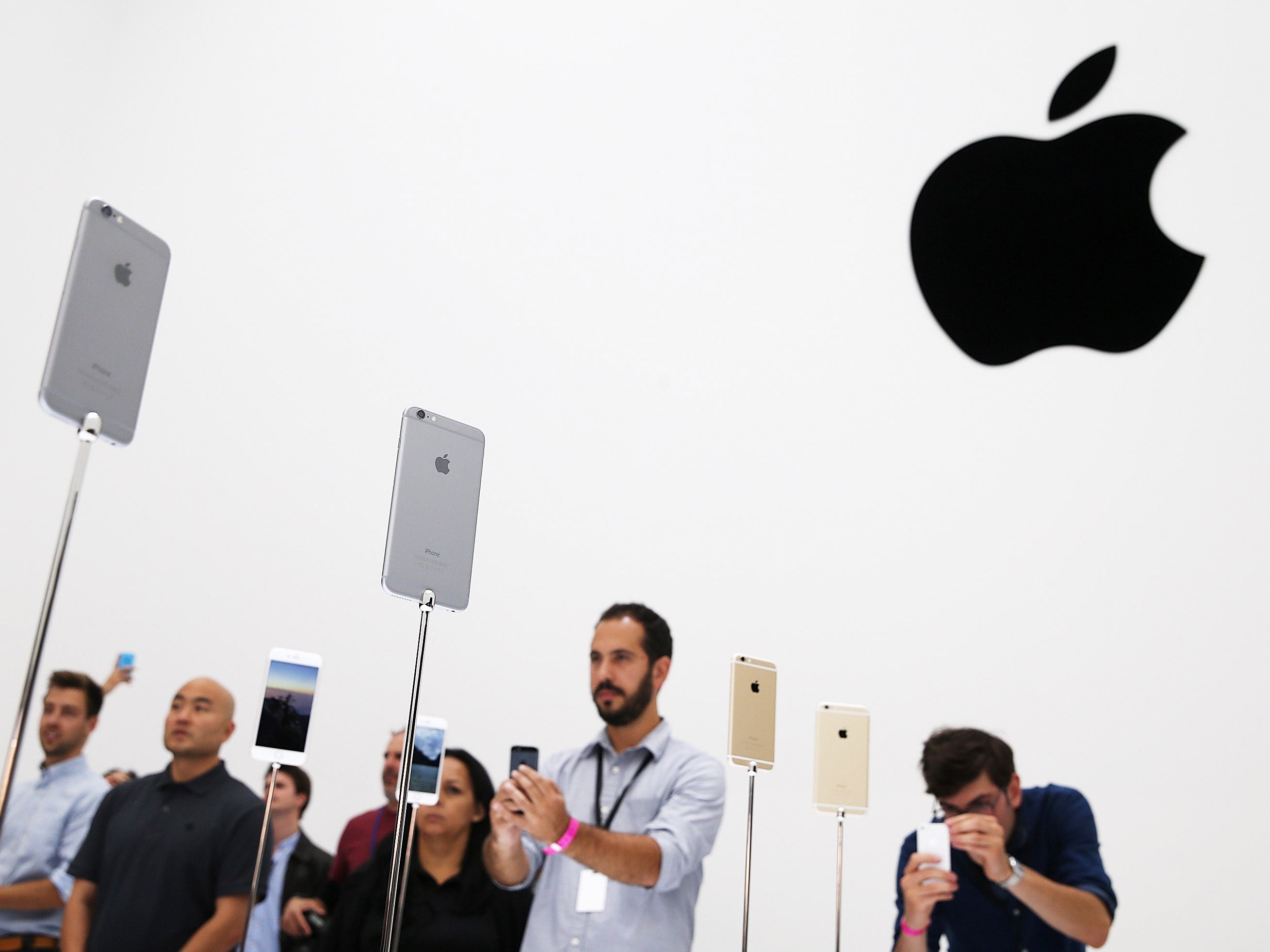iPhone cameras and microphones could be used to spy on their owners if the government gets its way, Apple says
The company claims that unlocking an iPhone used by one of the San Bernardino shooters would set a precedent that would allow the government to spy on people’s lives

Your support helps us to tell the story
From reproductive rights to climate change to Big Tech, The Independent is on the ground when the story is developing. Whether it's investigating the financials of Elon Musk's pro-Trump PAC or producing our latest documentary, 'The A Word', which shines a light on the American women fighting for reproductive rights, we know how important it is to parse out the facts from the messaging.
At such a critical moment in US history, we need reporters on the ground. Your donation allows us to keep sending journalists to speak to both sides of the story.
The Independent is trusted by Americans across the entire political spectrum. And unlike many other quality news outlets, we choose not to lock Americans out of our reporting and analysis with paywalls. We believe quality journalism should be available to everyone, paid for by those who can afford it.
Your support makes all the difference.Apple could be forced to spy on people through their iPhone camera and microphone if it complies with a government request, one of its executives has claimed.
If the company is required to unlock an iPhone 5c that was used by one of the San Bernardino killers, it could set a precedent that would allow for complete invasion of people’s lives, Apple’s head of services Eddy Cue has said.
The government and FBI have said that Apple should unlock the phone just in this case. But Apple has argued that doing so would require writing dangerous software that could be used on other handsets, as well as setting a dangerous legal precedent that would hand over power to the US government.
That same precedent could be used to break into phones and use them to spy on their owners, Mr Cue said.
“Someday they will want [Apple] to turn on [a user’s] camera or microphone,” he said to Univision. “We can’t do that now, but what if we’re forced to do that?
“Where will this stop? In a divorce case? In an immigration case? In a tax case? Some day, someone will be able to turn on a phone’s microphone. That should not happen in this country.”
Mr Cue’s argument echoed that of a judge earlier this month, who said that the FBI would be able to monitor everybody’s entire lives if an order requiring it to unlock a phone was allowed to stand.
Apple and other experts have argued that the FBI doesn’t actually need access to the phone in this case, but that it is pursuing the order because it will be able to use the powers in future situations.
Join our commenting forum
Join thought-provoking conversations, follow other Independent readers and see their replies
Comments